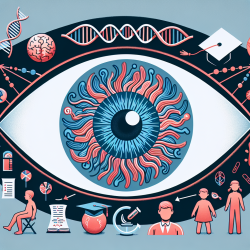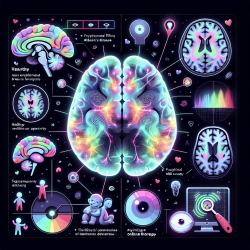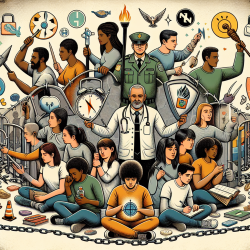As a Special Education Director, ensuring that all students receive the services they need is a top priority. However, therapist staffing shortages can present significant challenges in providing consistent and high-quality support. In this blog, we will explore how TinyEYE's online therapy services can help schools overcome these shortages, ultimately leading to better outcomes for students.
Understanding the Challenge of Therapist Staffing Shortages
Staffing shortages in special education are not a new issue. Schools across the country struggle to recruit and retain qualified therapists, including occupational therapists, speech-language pathologists, and mental health professionals. These shortages can result in:
- Increased caseloads for existing staff, leading to burnout and decreased quality of service
- Delays in service delivery, which can hinder student progress
- Challenges in meeting legal compliance requirements for individualized education programs (IEPs)
Research-Driven Solutions: The Role of Online Therapy
Recent research has demonstrated the efficacy of online therapy in various settings, including schools. Online therapy, also known as teletherapy, leverages technology to connect students with licensed therapists, regardless of geographic location. This approach offers several advantages:
- Accessibility: Online therapy eliminates geographical barriers, making it easier to provide services to students in rural or underserved areas.
- Flexibility: Scheduling is often more flexible with online therapy, allowing for sessions to be tailored to the student's and school's needs.
- Consistency: Online therapy ensures that students receive consistent support, even in the face of local staffing shortages.
Case Studies: Success Stories from Schools
Several schools have successfully integrated TinyEYE's online therapy services to address staffing shortages and improve student outcomes. Here are a few examples:
- Rural School District: A rural school district in the Midwest faced significant challenges in recruiting speech-language pathologists. By partnering with TinyEYE, they were able to provide consistent speech therapy services to their students, resulting in measurable improvements in communication skills.
- Urban Charter School: An urban charter school struggled with high turnover rates among occupational therapists. TinyEYE's online therapy services provided stability and continuity of care, allowing students to make steady progress toward their IEP goals.
Ensuring Legal Compliance and Quality of Care
One of the primary concerns for schools considering online therapy is ensuring legal compliance and maintaining the quality of care. TinyEYE addresses these concerns through:
- Licensed Therapists: All TinyEYE therapists are fully licensed and experienced in providing online therapy.
- Data Security: TinyEYE uses secure, HIPAA-compliant platforms to protect student privacy and confidentiality.
- Progress Monitoring: Regular progress reports and data tracking ensure that students are meeting their IEP goals and receiving the support they need.
Empowering Occupational Therapists and Other Professionals
For occupational therapists and other professionals, online therapy offers an opportunity to expand their reach and impact. By joining TinyEYE, therapists can:
- Work with a diverse range of students and schools
- Enjoy flexible scheduling and work-from-home opportunities
- Access ongoing professional development and support
Conclusion: A Path Forward
Addressing therapist staffing shortages is a complex challenge, but online therapy offers a viable and effective solution. By leveraging technology, schools can ensure that all students receive the high-quality support they need to thrive. TinyEYE is committed to partnering with schools and therapists to make this vision a reality.
We invite occupational therapists and other professionals to explore the opportunities available through TinyEYE and join us in making a positive impact on the lives of students.










